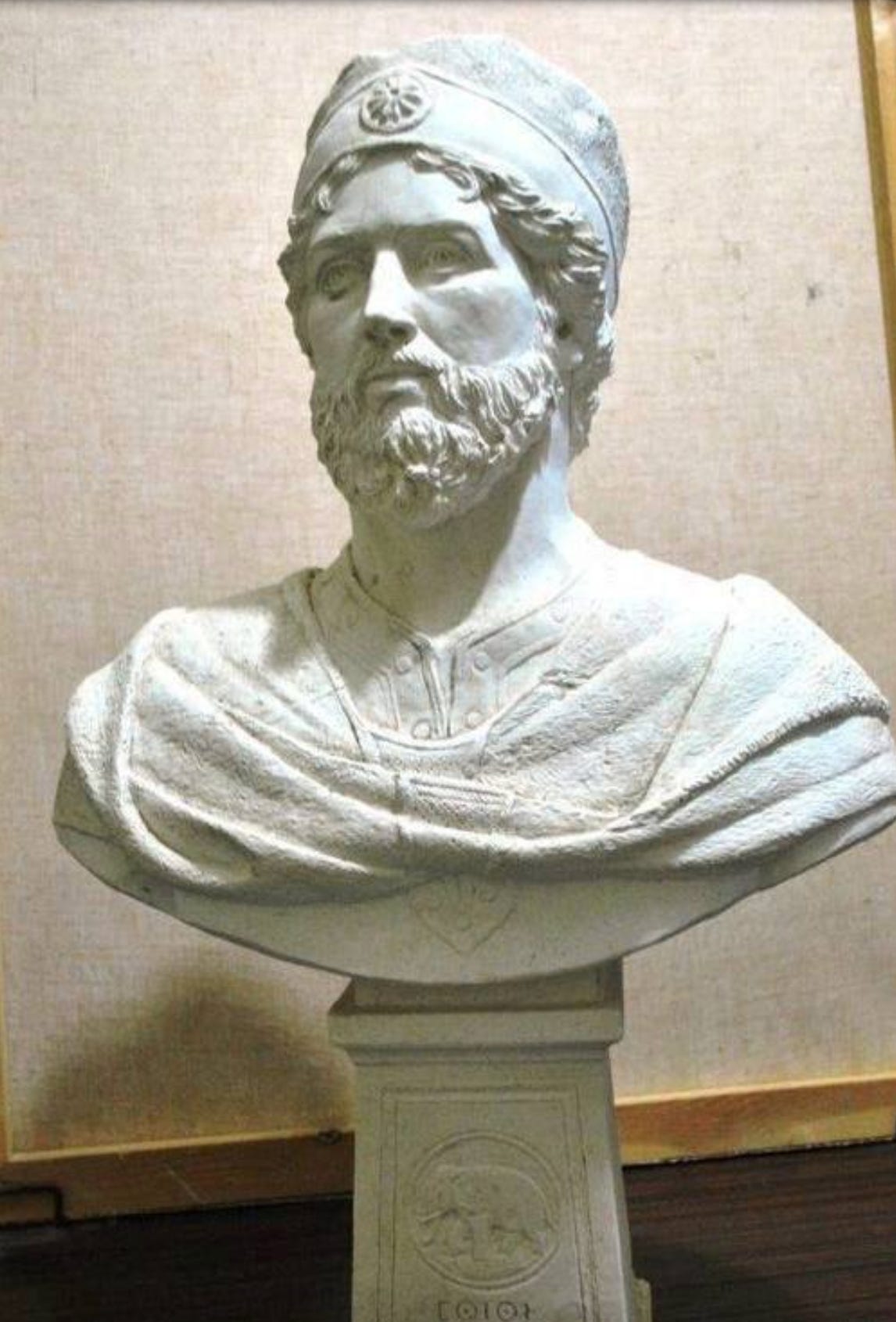The above photo is a chandelier. What culture do you suppose it comes from? Would you guess its origins to be Asiatic, African, European, Mesoamerican, or something else?
The landscape of the known world from a European perspective was much different before the Common Era. Every place that had a port along the coasts of North Africa, Asia Minor, and Europe was Phoenician, which gave way to Etruscan, Greek, and Roman, if there’s any real difference between them. I liken all of these cultures to different branches of the same tree. The Numidians were called Berbers. The following image is a bust of King Massinisa. He doesn’t look Mesopotamian or Subsaharan, does he?
From Wiki, “Massinisa an ancient Numidian king best known for leading a federation of Massylii Berber tribes during the Second Punic War (218–201 BC), ultimately uniting them into a kingdom that became a major regional power in North Africa.”
Again, “Some of his descendants were the elder Juba I of Numidia (85 BC–46 BC) and younger Juba II (52 BC–AD 24).”
Juba is Ἰóβα, which is pronounced like Jove and Tetragrammaton: Yoh-vuh. The β (beta) is pronounced like an English V. One of the most egregious mispronunciations of all time is how people of Western Culture pronounce Job (in the Book of Job), which is a transliteration of Ιωβ (pronounced Yohv).
Clearly Massinisa is European. Numidia is the region of North Africa that was civilized by the Phoenicians, regions inhabited by so-called Numidians, whom the Greeks called Berbers. Massa is a burden in Latin. Nisa is seen in words like Nyssa, or Mount Nissa, which is the same as Ida, Meru, Zion, etc., the mountain of the cosmos or the World Tree whose golden fruits are the stars. The Greek νῆσος (nisos, pronounced like knee-sohs) means island. People often neglect the full name when they say Atlantis, which is Ἀτλαντὶς νῆσος, or Atlantis Nisos, the Island of Atlas. Zeus condemned Atlas to stand at the western edge of the earth and hold up the sky on his shoulders. Thus he is called enduring Atlas. Holding up the sky is quite the massa, or burden, isn’t it? Since the Atlas mountains rise in the region inhabited by Berbers, it has been suggested that the name might be taken from one of the Berber languages, specifically from the word ádrār "mountain".[12] The etymology of Atlas is unknown, obviously because the Greeks are the worst perpetrators of mythological and linguistic farrago, and even more obvious, Atlas is not of Greek origin. According to Ovid, Perseus arrives in Atlas's Kingdom and asks for shelter, declaring he is a son of Zeus. Atlas, fearful of a prophecy that warned of a son of Zeus stealing his golden apples from his orchard, refuses Perseus hospitality.[18]
Which tree bears golden fruit that are the stars? Atlas is a god, is he not? What is God in Latin? Dio. Atlas Nisos could therefore be Dio Nisos, God of the Island, of the Mountain, of the World Tree, like Ouranos. In the original mythology he holds up the spheres, not the globe. According to Wiki, a common misconception today is that Atlas was forced to hold the Earth on his shoulders, but Classical art shows Atlas holding the celestial spheres. Since the wandering luminaries, or spheres, conform to the sun’s ecliptic, their movement being a burden of the sun, it would make Atlas Nisos, or God Nisos, the God of Nissa/Nyssa: Dionysus, the sun.
This is getting a little too advanced for the casual observers, so we’ll convene on the other side for members only. But I’ll leave those of you who can’t afford to support my work with this:
Deloria wrote (God Is Red), regarding most tribal peoples, “Many of them do have legends about people from the skies visiting them and intermarrying with them. Much of the food-preparing knowledge and domestic skills are said to have been brought to them by remote-culture heroes who spent some time instructing the people and then departed (i.e., in Aztec legend Quetzalcoatl, a blue-eyed blond, taught them to plant corn and left them promising to return one day).”
Check out this video: 7 Amazing Etruscan Places
For my members, we’ll see how you did with guessing the origin of that chandelier, and then we’ll dive into some interesting topics about that culture.
Become a member to access the rest of this article.
Keep reading with a 7-day free trial
Subscribe to Ancient History, Mythology, & Epic Fantasy to keep reading this post and get 7 days of free access to the full post archives.






